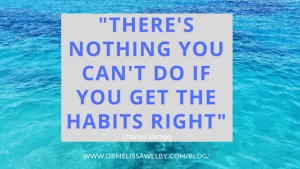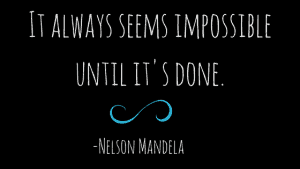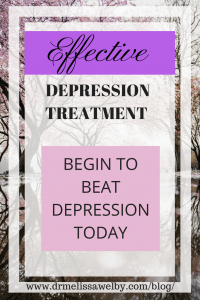Exercise isn’t just about physical fitness. It also benefits your mental health! Research supports the link between depression and exercise. Even 1 hour of exercise per week can be effective in helping you overcome depression. Learn how to increase your chance of success by treating depression with exercise and set yourself up for brighter days ahead. Get started and work to overcome depression today!
I am going to break this topic into 3 posts:
- This 1st post discusses the benefits of treating depression with exercise and why it’s important even if you start an antidepressant.
- The 2nd post will help you set achievable goals that will increase your chance to feel positive and get started with your plan.
- In the 3rd post, we will discuss how to maintain your goals with 3 tips to make it easier to stay on track exercising to overcome depression.
Exercise to treat depression

Do you need to be convinced exercising will be worth the effort it takes to get started? When you are depressed, everything feels harder to do. Energy seems like it is in short supply and needs to be rationed. Using exercise to treat depression may feel like the complete opposite of saving your energy, but exercise will rejuvenate you and help you heal. Staying in bed depletes your energy and keeps you from feeling better.
Research Studies about Depression and Exercise:
There are many research studies supporting the benefits of, and the relation between, depression and exercise.
This “study involved 946 patients with mild to moderate depression who were assigned to undergo either yoga or stretching, moderate aerobic exercise, or vigorous aerobic experience. Patients were encouraged to participate in three exercise sessions a week, but most only attended about one per week, Dr. Hallgren pointed out.”
“At the end of 12 weeks, Dr. Hallgren and colleagues found that the severity of depression was significantly lower among patients who participated in any one of the exercise interventions compared to those who received usual care, and that the benefits of exercise were seen regardless of how intensely the patients exercised.”
“Furthermore, the benefits of exercise on depression were maintained 12 months after baseline assessment, despite suboptimal adherence.”
More Research About Depression and Exercise:
Reviewing a vast amount of literature this comprehensive study supports the efficacy of exercise in the treatment of depression. They discuss the potential reasons why exercise interventions are helpful.
Preventative Effects of Exercise on Depression:
“Most of the protective effect of exercise is realized with relatively low levels of exercise, with no indication of any additional benefit beyond 1 hour of exercise each week,” the investigators note.
“The protective effect was seen equally across all groups, regardless of the intensity of exercise that was undertaken or the gender or age of the participants,” they add.
“The results of this study indicate that relatively modest increases in the overall amount of time spent exercising per week may be able to prevent a substantial number of new cases of depression,” they conclude.
There is a lot of overlap between depression and anxiety. Exercise can also benefit your anxiety. Read this study on anxiety and exercise if you would like to know more.
Treating Depression With Exercise: Important even if you are starting medication

Medication is often a necessary treatment for depression. It is (unfortunately) common for a person with depression to respond to medication with a partial recovery. This means that symptoms have improved but are not completely gone. The goal is to have a complete recovery. Often medication cannot do it alone and needs augmentation with other interventions.
Medications also take time to help. Antidepressants can take 3-5 weeks before they start to kick in. Anything that you can do to keep yourself busy while adding positive, healthy, and nurturing things to your life will help you get through this period of time.
Treating Depression: Additional coping mechanisms
Exercise is one important tool to help you fully conquer depression and stay on a more positive path. There are other essential self-care tools to help you recover from depression:
- Eat properly and nourish your body with healthy food
- Avoid alcohol or drugs. Remember, alcohol is a DEPRESSANT! It will make depression worse and make it harder to recover. If you are taking an antidepressant and drinking a depressant (alcohol) the antidepressant may be less effective.
- Get adequate rest. Give your body time to restore itself.
- Take care of yourself by getting out of pajamas, brushing teeth and hair, and getting out of the house every day.
Therapy can be extremely important, and for some people even more important than taking medication. Therapy will help to address thinking patterns that can get you stuck. Without addressing these negative cognitive patterns it may be more difficult to completely recover.
Start to shift negative thinking patterns by using mantras. Read this post to get started: 30 Healing Mantras for Depression
Add as many healthy coping tools to your life as you can to help you recover fully. These tools can decrease the chances that you will fall back into a depression and will help you get out of the current episode quicker.
If you are having trouble sleeping (common with depression) I have written some other posts you may find helpful. It is extremely important to address insomnia as you recover from your depression.
- Coffee Before Bedtime
- The Truth About Alcohol and Sleep
- Can’t Sleep? Back to Basics
- 8 Great Options to Treat Insomnia (Without Medication)
Treating Depression: The see-saw of life
Think of the effects of depression on life like a playground see-saw that is stuck down from the heavy load. Extra effort has to be put into adding positive weight to the other side to bring you back up. Little by little, each piece of self-care added will inch the see-saw back to a more balanced and neutral position. Exercise is one important tool that will help you bring back balance and fight off the negative pull of depression.
Now that you understand why treating depression with exercise is important, make sure to read the next 2 posts to learn more about how to get started on the path to recovery and how to maintain motivation.
Exercise and Depression: How to get started when you want to stay in bed
3 Tips for Exercise: How to stay motivated when depressed
Interested in reading more about how to overcome depression?
Visit my Mental Health Bookstore for recommended books about depression and other mental health topics.
Books to help you overcome depression:[amazon_link asins=’1462520421,1608822087,1626251207,0762447699,1572247053′ template=’ProductCarousel’ store=’drmelissawelb-20′ marketplace=’US’ link_id=’09106abe-2567-11e8-853f-dbaca085f579′]
8 Facts About Antidepressant Side Effects

Worried about having side effects on an antidepressant? Want to know what to expect when starting one? Signup here to go right to the link!




This is a great article and I look forward to the series. I will reference this and share with many to encourage them to MOVE!!
I’m glad you found it helpful!